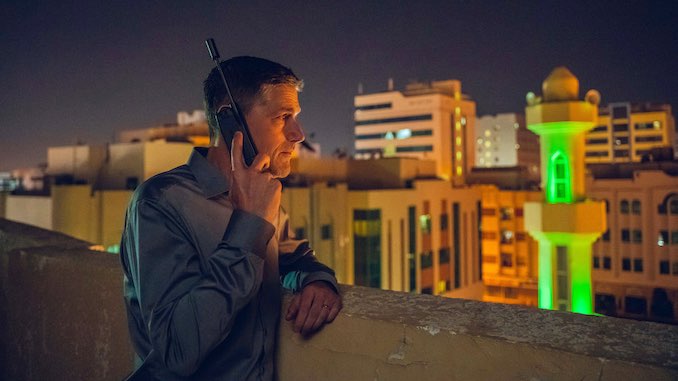Peacock’s Last Light Proves that Yes, Even the Apocalypse Can Be Dull
Photo Courtesy of Peacock TV Reviews Last Light
There is something irresistible about apocalyptic art in our current epoch, and while we could argue for hours about why that’s the case, it probably comes down to the simple idea that at least some part of us suspects that our own world is ending. Not in any dramatic, sudden way, but by a slow maddening drip, and when you exist in that kind of uncertain, torturous reality, there’s probably something therapeutic about watching a show or reading a book in which the horrific ending comes on fast. It’s like when you dread some future interaction, and part of you is relieved when the day arrives; at least we can get it over with. Apocalypse art gives us that vicarious relief and allows us to experience the hell we think might be coming with a raw kind of immediacy. From the mawkish zombie set pieces of The Walking Dead to the elegant plague narrative of Station Eleven to political upheaval tales like Years and Years, we can do exposure therapy via our television.
All of which means it’s a boom time for end-of-days pieces, and when boom times hit, everybody wants a piece of the action. Which, in turn, means that there will be some duds in the deluge. Last Light, Peacock’s new crack at dystopia, is unfortunately one of these duds. The premise here is that the world’s oil supply has been corrupted, and it’s a good one, borrowed as it is from the novel of the same name by Alex Scarrow. When the oil goes, either by accident or by some nefarious actor, everything stops working, and chaos ensues. Unfortunately, the chaos here is depicted in such sloppy broad strokes, with such lazy characterization and stilted dialogue, that it becomes clear almost immediately that it won’t move you. It won’t even work as a guilty pleasure, because unlike The Walking Dead, there isn’t a solid base of interpersonal drama to this period, no Rick Grimes who we can use as our north star.
The story centers on the Yeats family, and the cliches are never-ending. The dad, Andy (Matthew Fox, in a less-than-triumphant return to the screen), is involved in the oil industry, but his daughter, Laura, is a climate activist (this leads to brutal exchanges like the one in which Andy says, “good luck saving the world” as Laura goes to a climate march, and she shoots back, “good luck destroying it.”) Their son, Sam, is blind and on the verge of potential life-saving surgery when the disaster strikes. Elena, the mom, stays at home to look after him, but is also a dynamic career woman eager to get back to working life—except now she has to roam through the streets of Paris trying to protect her son as everything burns and the people go mad. The minor characters are no better; just a collection of cliches slapped onto a page and embodied by actors who deserve better.
This all looks sort of banal, on the page, but there’s a world in which it could still work if the performances weren’t so rigid, the conversations so relentlessly boring. Worse, it proves impossible to slip into the hells of the apocalypse, because the behavior of ordinary people accelerates from zero to raving hordes so quickly that it defies even a tenuous connection to realism. The directorial choices, too, are puzzling; in the second episode, Laura wakes up from a party to hear a window banging downstairs. The scene that follows uses the ominous music and remote camera angles of a horror movie, and when her phone rings, it seems very much like she’s about to be attacked. An uncomfortable call ensues, and we see a blurry shape move outside the windows in the background, at which point we discover that it’s her boyfriend, he slept on the sofa, and they’re going to get lunch. What, the discerning viewer might wonder, was the point of all that build-up? There is no answer, only confusion.
You can pick any genre in the world that has some degree of popularity, and you’ll be able to find examples of films or movies or books that just sort of limp into the rhythms of the drama without bringing anything new or special. If “Apocalypse Art” were a human, it would be flattered to know that it had become so prominent as to invite these low-effort hangers-on. For the rest of us, it’s only discouraging to learn that even something as dire as the end of the world can be slow, inscrutable, mostly meaningless, and ultimately dull. We’re already living that reality, or at least we’re scared that this is the case; dystopia only works in art when it sheds the banality of our ordinary armageddon.
Last Light premieres September 8th on Peacock.
Shane Ryan is a writer and editor. You can find more of his writing and podcasting at Apocalypse Sports, and follow him on Twitter here .
For all the latest TV news, reviews, lists and features, follow @Paste_TV.